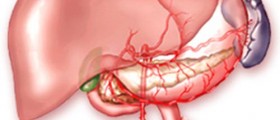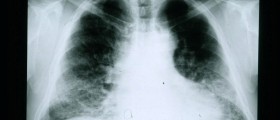
Acute liver failure can occur in a matter of days, and if not properly addressed, can lead to severe damage of the liver in a very short space of time. If the liver loses its function, then the resulting condition is referred to as liver failure. Usually, the condition develops gradually over time, but in the case of acute liver failure, the condition manifests quickly and causes rapid damage. The condition can lead to some severe complications.Symptoms
Some indications of the presence or onset of liver failure include nausea, fatigue, abdominal pain, diarrhea and lack of appetite. Additionally, as the condition worsens, one might experience jaundice (yellowing of the skin) and abdominal tenderness and distention.
Acute liver failure can lead to a condition known as hepatic encephalopathy. This condition can have a negative impact on brain function. Symptoms of the occurrence of this condition include gradual reduction of cognitive capabilities. One might also experience muscle tremors, insomnia, disorientation, delirium and confusion. If the condition is not appropriately addressed, hepatic coma might occur.
Causes
Acetaminophen overdose can lead to acute liver failure. The drug is used as a pain reliever and an antipyretic. Overdosing on this drug is one of the most common causes of liver failure. Excessive intake of antibiotics, NSAIDs and anticonvulsants can also hold significant dangers with regard to the onset of acute liver failure.
Hepatitis A, B and C are well known causes of liver failure. Autoimmune hepatitis is another condition which could possibly lead to the onset of liver failure. Autoimmune diseases occur when the body’s immune system attacks the body. Liver cancer - primary and secondary - can also lead to acute liver failure, as can vascular diseases. Some metabolic diseases can also increase the risk of liver failure.
Other causes of liver failure include cirrhosis, malnutrition, excess alcohol intake and consumption of toxins contained in wild mushrooms.
Treatment
Acute liver failure requires proper examination before a final diagnosis. Treatment will of course depend on the underlying cause and also the severity of the condition itself. For example, if the cause is acetaminophen overdose, then treatment will focus on reversing the negative effects of such an occurrence. Medication will be used to combat poisoning, bleeding and infection. Liver transplant will be necessary for patients in whom the damage to the liver is irreversible. For the most part, those who are suffering from acute liver failure must be admitted to an intensive care unit in order to undergo proper treatment.

















Your thoughts on this
Loading...